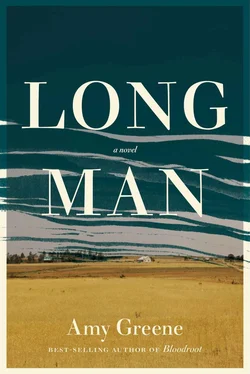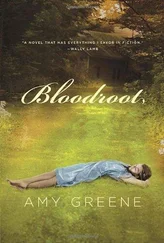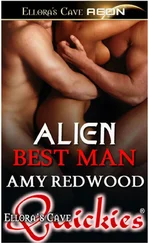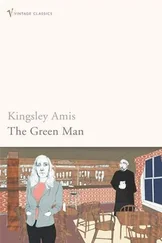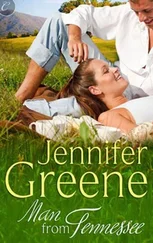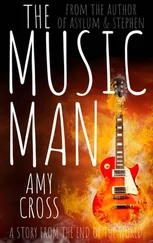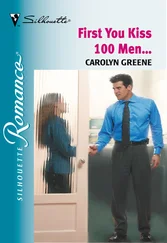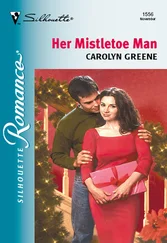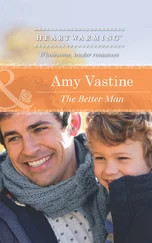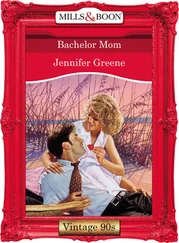She would have stood there longer with her thoughts if the wind hadn’t picked up and pushed her from behind, blowing her hair in knots and fetters before her, shuffling the trumpet weed in her sack. She glanced up at the skies and got moving, following the grooves James Dodson’s truck had made in the road, her feet marring the rankled print of his tires. Still deciding what to do when she reached the Walker farm, she almost walked into the back of the Model A Ford pulled over to the shoulder. When she saw it parked there she stopped short. Then she took a hesitant step forward, trying to see through the back window into the boxy cab. She had never been this close to the vehicle that would take her people away. The rusted hubcaps and running boards, the arched fenders and the round headlamps on either side of the grille. Through the stakes she could see there was nothing inside. But she pictured it loaded with furniture that once belonged to her sister. It crossed her mind that if she raised the hood and yanked out a cable the Dodsons would be going nowhere tomorrow. She might have done it if she hadn’t been distracted by a bustling behind the barbwire fence. She thought at first it must be James coming back to the truck, though she couldn’t think why he’d be in the Hankins pasture. Then a blackbird burst out of the hedge and disappeared in the trees above. The roadside bank was astir with them, foraging for seed, grub and cricket before the rain. She could sense the beads of their eyes watching her, as if they knew what she’d considered. She bowed her face and hurried to the other side of the road, dragging her sack through puddles floating with canoes of willow leaf.
Silver didn’t slow down until she came to her niece’s split-rail fence. There she paused and looked into the cornstalks, the shucks holding the roasting ears swaddled. After decades the Walker farm still reminded Silver of how her sister chose a man and his land over her own flesh and blood. But as far as they’d drifted from one another, Silver had felt like she was dying herself when she learned Mary had a cancer of the womb. On the winter night Mary died Annie Clyde sent James up the mountain to fetch Silver. He knocked on her door holding a lantern. She followed him back down with a quilt bundled around her shoulders. Mary was talking out of her head by the time Silver got there. Silver sat all night with Annie Clyde in Mary’s freezing bedroom shivering as the fire burned out. But she left before it was over, refusing to watch Mary take her last breath. She didn’t attend the funeral at the Free Will Baptist church either. She went back up the mountain and stayed indoors the rest of that winter, skitters of ice ticking at the windowpanes. She spent those months grieving and trying to keep warm. She forgot her own birthday that year because Mary would grow no older. Now standing this close to where Mary died was like reliving it all. She couldn’t fathom going up to the house and knocking on the door.
She was lingering at the fence, putting off the long walk up the track, when something dropped from above and landed at her feet. Her first confused thought was of the blackbirds. She half expected to find a pile of feathers in the damp grass. But when she crouched with the cotton sack trailing and her dress around her thighs what she discovered was an ear of sweet corn. Gnawed down to a few yellow-white kernels, fat to bursting and shining like pearls in the dimness. Silver rose and whirled around. When she saw the man across the road her backbone straightened. He was hunkered on one knee atop the bank overlooking the cornfield picking his teeth with a matchstick, staring across the tassels at the roof of Annie Clyde’s house. After a second he pitched the matchstick and shifted his stare onto Silver. She was overcome with a feeling like spiders crawling up her arms. He stood then, trampling wildflowers underneath his boots, the wind lifting the heavy tail of his peacoat. At the same time, some heaviness lifted from Silver. She hadn’t thought of Amos in years, but a part of her must have been waiting for him all along. She stayed put as he strode down the bank and stopped before her, his bindle on his shoulder. Up close, he smelled like moss and fungus. “How are you making it, Silver?” he asked.
She opened her mouth but could find no fitting answer. She studied him in silence, too moved to speak. She realized she’d given him up for dead years ago. It was a feat that he had managed to live this long. But she shouldn’t have doubted him. Amos was the only one who always came back. He was a force as sure and dangerous as the river. She took him in, her eyes starting at his worn boot toes, moving up the ragged legs of his gabardine trousers, resting at last on his lean face. Something came over Silver then. Maybe it was the day she’d spent out of sorts. Or the months spent feeling alone like never before. She reached out to lay her palm against his black-whiskered cheek. “You still look like yourself,” she told him. With her thumb she grazed over the scarring of his eye socket, a pocket of fever-hot flesh. “How come you don’t change?”
Amos didn’t flinch, but his fingers raised between them and closed around her wrist. He guided her hand back to her side and it hung there, burning. “I never saw the use in change.”
Silver swallowed a catch in her throat. “I guess you saw things are different around here.”
“But not you.” His attention turned to the cotton sack strapped on her shoulder, the wooden handle of her corn knife poking out among the trumpet weed umbels. “Still an outlaw.”
Silver felt herself smiling, her dry lips splitting in places. She touched the cuts as if to take her smile back, but Amos returned it. She glanced down again at the cuffs of his trousers, laden with muck from the ditch. He must have eaten his dinner in the gully, as she had hidden herself less than an hour earlier. But Amos was probably avoiding the sheriff and not James Dodson. She could have told him Ellard Moody was occupied with the power company, but she figured it would be better not to mention the sheriff’s name given her history with both men. “We got the place to ourselves now,” she said. “Ain’t that what we wanted when we was little?”
Amos’s smile vanished. “Seems so. They couldn’t get rid of us so they left it to us.”
Silver didn’t like the shadow that crossed his brow, the gleam that had come into his eye. She decided to change the subject. “Beulah’s still around, though. You headed up the holler?”
“And your niece,” Amos said, ignoring her question. “She’s still here.”
She thought of him up on the bank, staring across the corn. “You’ve seen Annie Clyde?”
“Not much of her,” he said. “She ran me off.”
“What are you doing out here, Amos?”
“Wondering if I can beat the rain up to Beulah’s.”
“I doubt it. You better find someplace to get in.”
“You better, too.”
“I don’t mind the rain,” she said.
“No,” he said, his one eye meeting hers. “You never did.”
Silver felt the burn in her palm spreading. “You can come up the mountain with me.”
He looked over his shoulder, toward the weedy bank. “I ought to be getting along.”
“Will you come directly? I got a lard can full of blackberries going to waste up yonder.”
Amos paused, gazing at her in a way that would later trouble her dreams. “I don’t know this time, Silver,” he said. Then he tipped his hat and walked off. She watched him go with loose-limbed grace up the bank, his lithe back moving away from her. Once he was out of sight she turned and braced herself on the fence rail. Since childhood Amos had had a way of shaking Silver up, muddling her senses. She suspected he had the same effect on other women in the far-off places he passed through, at least those unafraid to look at him for long. Silver had never feared Amos as most others did. From the time he was a foundling the townspeople of Yuneetah had turned their heads when Beulah Kesterson brought him along on her peddling rounds. He wasn’t an ugly boy. His face was almost too perfect. Like a mask, white and smooth as porcelain. Unlike the rest of Yuneetah, Silver couldn’t get her fill of Amos’s looks, even after his eye was lost. When they were children playing in the hollow he used to smile at her like they had a secret, as though she was complicit in his mischief. Ellard Moody was a sweeter boy, braiding willow crowns for Silver’s head and giving her his best marbles. But she had wanted Amos.
Читать дальше
